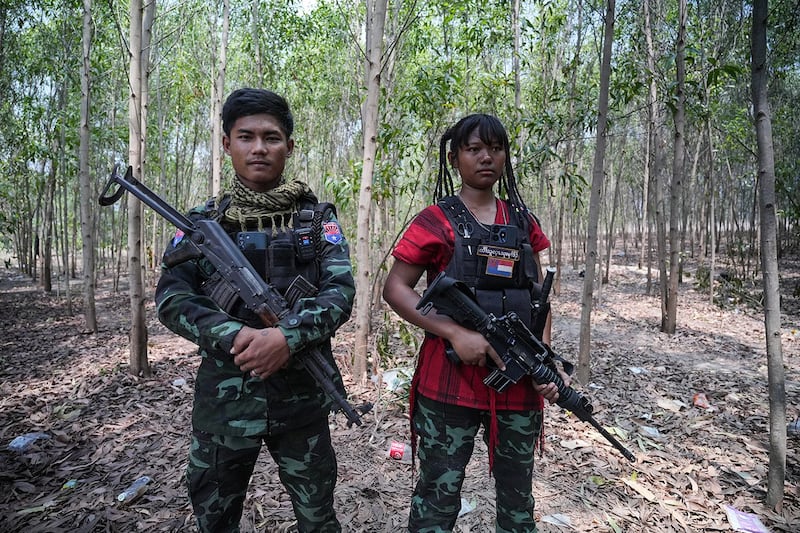With braided hair, pink plastic clogs and a wide grin, 18-year-old Moe Pyae Sone stands straight before a camera and tells of her decision to leave her family, her school and her village.
“I am from northern Shan state and I’ve come to Kayin state for the revolution,” she says to Radio Free Asia.
Moe Pyae Sone pauses for a moment at an internally displaced people's camp just south of Myawaddy, where ethnic rebels recently overran military junta positions.
Wearing camouflage pants and a tactical vest over a traditional red garment, she recalls her participation in protests – like so many other young people – against Myanmar’s military junta after the Feb. 1, 2021, coup d’etat.
Knowing of her desire to fight, her parents asked her to remain in school, she says. But in 2022, she secretly sold a pair of earrings to pay for travel expenses.
On the other side of the country – in Chin state – she joined rebel forces and eventually became a trainer.
“In Chin state, I’ve gained combat experience,” she says. “I’ve participated in quite a few battles.”
She speaks matter-of-factly and occasionally lets loose with a nervous giggle.

Earlier this year, she made her way to Kayin state to join with another group of anti-junta fighters.
She’s the eldest of three siblings. She says her mother still lives in the same village in Shan state.
“Of course they worry about me,” she says.
Then she jumps in the back of a pickup truck with a half dozen others. She turns around to wave goodbye – still smiling – as they drive off toward a junta outpost.
Edited by Matt Reed.
